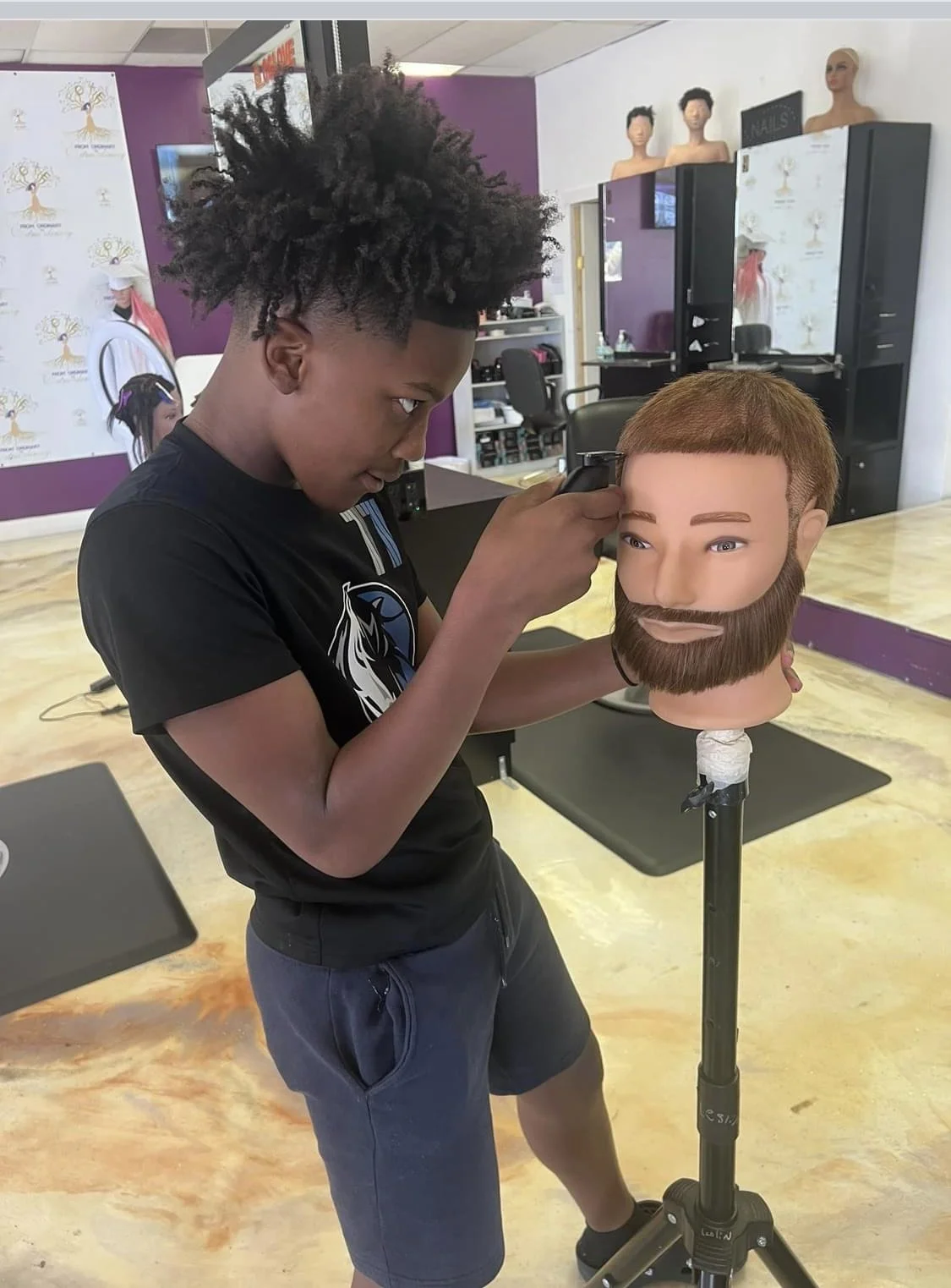Lead the Leader Mentorship
To Feed and Nourish the Leader in Every Young Man
Our Services
Life Coaching
-
Teens often experience a whirlwind of emotions, with anger frequently emerging as a dominant feeling. Learning to communicate anger effectively not only promotes emotional intelligence but also fosters healthier relationships with peers and family. Here are key strategies that can help teens articulate their feelings of anger constructively:
Identify Triggers: Encourage teens to reflect on situations that provoke anger. Understanding these triggers can help in recognizing patterns and preparing responses.
Use “I” Statements: Teach them to express feelings using “I” statements to communicate their emotions without placing blame. For instance, “I feel frustrated when my opinions are dismissed” focuses on the emotion rather than accusing others.
Practice Active Listening: Effective communication is a two-way street. Emphasize the importance of listening to others' perspectives, which can diffuse tension and foster mutual understanding.
Explore Healthy Outlets: Encourage the practice of physical activities, journaling, or creative expression as healthy ways to channel anger. These outlets can serve as valuable tools for processing emotions.
Role-Playing Scenarios: Simulate situations where teens can practice expressing anger constructively. Role-playing can help in building confidence and discovering appropriate wording and delivery.
Set Boundaries: Teach teens the importance of setting boundaries when dealing with anger. Knowing when to walk away from a heated situation can prevent further escalation.
Seek Solutions: Encourage a solutions-oriented mindset. Instead of fixating on the issue at hand, guide them to think about potential resolutions and avenues for compromise.
By equipping teens with these effective communication tools, we empower them to express their anger in a way that is both constructive and respectful, thereby enhancing their emotional well-being and interpersonal connections.
-
Helping teen boys navigate their career opportunities involves a structured approach that combines self-discovery, skills development, and strategic planning.
Self-Discovery
Identify Interests and Strengths: Encourage teen boys to take stock of what they enjoy and where their skills lie. Tools such as personality tests (e.g., Myers-Briggs or Holland Code) can help them understand their preferences.
Explore Various Fields: Provide resources and information on diverse career paths. Organize workshops, invite guest speakers from various professions, and potentially set up job shadowing experiences.
Skills Development
Life Skills: Emphasize the importance of soft skills like communication, teamwork, time management, and problem-solving. These skills are crucial no matter the career path.
Technical Skills: Depending on their interests, encourage them to seek opportunities for developing technical skills, whether through school clubs, online courses, or summer internships.
Mentorship: Connect them with mentors in their areas of interest. Mentorship provides guidance, motivation, and knowledge from someone who has navigated the career path.
Strategic Planning
Set Goals: Help them set short-term and long-term career goals. This can include academic achievements, extracurricular activities, or specific skills they want to acquire.
Resume and Interview Preparation: Assist them in building a resume, practicing interview techniques, and understanding professional etiquette. They should feel confident in presenting themselves to potential employers.
Networking: Teach them the importance of networking. Encourage participation in local community events, career fairs, and online platforms suitable for their age group.
Continuous Learning: Instill the habit of lifelong learning. Help them understand that career success often requires continuous skill enhancement and adaptation.
By guiding teen boys through these steps, they can better navigate the myriad of career opportunities available to them, ensuring their choices align with their talents while fostering the skills necessary to thrive in their chosen paths.
Substance Use Education
-
Tobacco usage among teenagers is a significant concern, as it often arises from peer pressure. Adolescents, striving for acceptance and validation within their social circles, may feel compelled to experiment with tobacco products, including cigarettes and vaping devices, to fit in or appear mature.
The allure of tobacco can be particularly potent in environments where it is glamorized or normalized. Friends who smoke or endorse vaping can influence others to engage in similar behaviors, leading to a cycle of addiction that is difficult to break. The brain's developmental stage during adolescence makes individuals more susceptible to these external influences, diminishing their ability to resist peer pressure effectively.
Educational programs targeting this demographic should focus on enhancing self-esteem and resilience while providing the necessary tools to navigate peer relationships. Promoting awareness about the health risks associated with tobacco use is equally crucial.
Intervention strategies that engage teens in positive peer group activities can also mitigate tobacco use by fostering a supportive environment that champions healthy choices. It's vital to create spaces where adolescents can develop strong friendships based on mutual support rather than harmful habits. Through comprehensive education and community involvement, we can empower teenagers to stand firm against peer pressure while making informed decisions about their health.
-
Alcohol awareness is one of the leading aspects of addressing peer pressure among young individuals. Understanding the risks associated with alcohol consumption is crucial for empowerment and informed decision-making. Many young people face significant pressure from their peers to experiment with alcohol, leading to potential short-term and long-term consequences on health, relationships, and academic performance.
Education plays a critical role in alcohol awareness. It is essential to provide clear information regarding the effects of alcohol, including its impact on personal development and the potential for addiction. Workshops and discussions centered around real-life scenarios can help individuals recognize the nuances of peer pressure and develop strategies to resist it effectively.
Creating an environment of open communication is also vital. When young people feel comfortable discussing their experiences and concerns, they are more likely to seek guidance and support from trusted adults or mentors. This cooperative approach fosters resilience against negative influences and encourages responsible decision-making.
Moreover, engaging in extracurricular activities and developing strong peer networks can serve as protective factors against peer pressure related to alcohol. Encouraging participation in healthy and constructive events can shift the focus away from substance use and promote positive coping mechanisms.
In conclusion, addressing alcohol awareness in the context of peer pressure requires a multifaceted approach involving education, open communication, and the promotion of healthy alternatives. By equipping young people with the knowledge and support they need, we can effectively combat the challenges posed by peer pressure surrounding alcohol consumption.
Their Success is Our Success
Contact Us.
reports@iamfote.org
(469) 254-7849





































